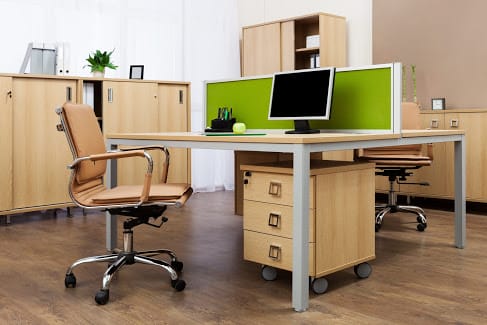
When Does Moving From a Home Office to a Separate Office Make Sense?
With around 20 percent of American adults working from home these days, the idea of a home office has transformed from a “nice to have” to a “must have” for many employees and freelance workers and consultants.
A 2013 survey by the Telework Research Network indicates that the number of work-from-home arrangements will continue to rapidly rise over the next decade as more workers move away from the nine-to-five schedule in lieu of telecommuting.
However, whether you’re a freelancer or work from home as part of your W-2 job, you may occasionally find yourself feeling out of the loop without the benefit of daily in-person interactions with your coworkers, supervisors, or staff. In other cases, you may find it tough to be motivated to put in a full day’s work while knowing you can perform your job in your pajamas without judgment.
Read on for some factors you’ll want to consider when deciding whether a move from a home office to a freestanding one makes sense for your business, finances, and lifestyle.
Tax Considerations
Those who have a dedicated home office are likely to take advantage of the associated federal income tax deduction and any state deductions available. Indeed, those who use a part of their home exclusively for business purposes may be able to write off a portion of the mortgage and property taxes paid for this space each year.
While this tax deduction can be a great way to add to some of the substantial savings that can come from teleworking, it may also increase the risk of an IRS audit.
Many taxpayers have misunderstood this deduction as applying to any use of one’s home for work or employment purposes, expanding the scope of this deduction far beyond its intended purpose and raising the ire of IRS agents in the process.
As a result, even if you’re fully entitled to this deduction, taking advantage of it may raise your risk of an audit for any year in which this deduction was claimed. This is especially true if your home is relatively expensive compared to the available office space in the area.
On the other hand, paying to rent or lease a separate office space and deducting this expense as a business expense is less likely to lead to extra scrutiny of your federal income tax return unless there are other audit trigger points.
You may want to consult with your tax accountant to see whether you’re at an elevated risk of audit and, if so, whether moving to a separate building could be a wise move.
Workload
The type and frequency of the work you perform at home can often be a factor in your ability (or desire) to perform this work outside your home.
For example, if you rarely put in more than 10 to 15 hours per week in your home office, you may find that it’s not cost effective to rent out a separate space full time; meanwhile, those who spend a full 40-hour workweek (or longer) in their home offices may be able to make much better use of a freestanding space.
If your need for conference space tends to be sporadic and fairly last-minute, you may want to look into a space-sharing arrangement that can allow you to spend most of your workdays at home while having access to meeting space, conference rooms, or a single-person office upon request.
This type of arrangement can offer you the best of both worlds, giving you the chance to make a good impression on your clients, customers, or colleagues (and getting you out of the house in the process) while still saving money.
Working Hours
Some teleworkers have pointed to the constant availability of the home office as both a blessing and a curse. For many, particularly parents of young children whose schedules may not permit a strict nine-to-five workday, the ability to put in a few hours of work after the kids go to bed can be invaluable.
However, others cite the home office as one that never closes, which can make it tough to enforce any type of dividing line between work life and home life.
If you’ve found that you’re unable to “clock out” at the end of the day or have begun to resent your home office for encroaching upon your family time, moving into a new space can be a way to physically and emotionally separate these facets of your life.
Fortunately, the proliferation of work-from-home arrangements over the last decade has made it much easier for teleworkers to find alternative office arrangements. Whether you opt to share space with another teleworker or decide to rent your own office, work with a leasing agent who understands your needs and can help you fully evaluate your options to ensure you make the right choice.
